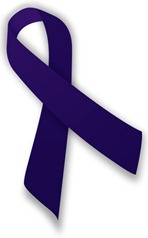Use Your Wikipedia Donation to Support Indie Authors
 Online encyclopedia Wikipedia has begun its annual pitch for donations to continue operating as an independent, non-profit information resource. Founder Jimmy Wales will once again ask those who visit the website to donate “to protect and sustain Wikipedia.” This year, I encourage you to put this donation to a better use. Please use the money to buy books published by independent (indie) authors.
Online encyclopedia Wikipedia has begun its annual pitch for donations to continue operating as an independent, non-profit information resource. Founder Jimmy Wales will once again ask those who visit the website to donate “to protect and sustain Wikipedia.” This year, I encourage you to put this donation to a better use. Please use the money to buy books published by independent (indie) authors.
Wikipedia is biased against indie authors it considers “non-notable” unless their works are cited by “credible” sources. In general, it prefers traditional media and does not recognize citations from social media sites, blogs, writers’ networks, self-publishing websites, or indie awards. Unless you are noted by select information resources, you’re out of luck receiving recognition from Wikipedia.
Wikipedia also strongly discourages autobiographies. It prefers second- and third-hand sources, which it considers more accurate and objective than first-hand accounts, even though such sources may be biased. Whether the biographer has an ulterior motive or a conflict of interest is irrelevant. Wikipedia assumes that its system to evaluate biases in its articles is sufficient, although its view on autobiographies suggests that it is not robust enough to root out misstatements, factual errors, or embellishments regardless of source.
If you are an author with a publicist who writes an article about you linked to a source Wikipedia that considers credible, then welcome to the club. If you’re a successful self-published indie author with an independent network, you’re out of luck. You and your books are not eligible to be included in Wikipedia. Don’t ask your friend to post your biography for you. Anonymous monitors who evaluate articles according to the site’s self-determined criteria will delete you.
Most self-published authors do not qualify for Wikipedia profiles. This does a disservice to the many hard-working, established writers who have chosen to self-publish. The rapidly expanding self-publishing industry operates differently than traditional publishing, and indie authors are more apt to promote each other through social media, writers’ circles, and independent networks than to wait for recognition from traditional media. Wikipedia’s rules are better suited to the pre-Internet and pre-social media eras. Rather than adapting to changes in the publishing industry, it simply chooses to exclude most indie authors.
This year, please support independent authors. The money saved from not donating to Wikipedia will buy some great books and recognize outstanding authors.
Here are three independent author communities with thousands of books to choose from:
Thank you for your support.
The opinions expressed in this article represents solely the views of the author. Encyclopedia image courtesy of Microsoft; the indigo ribbon is public domain.
M.G. Edwards is a writer of books and stories in the mystery, thriller and science fiction-fantasy genres. He also writes travel adventures. He is author of Kilimanjaro: One Man’s Quest to Go Over the Hill, a non-fiction account of his attempt to summit Mount Kilimanjaro, Africa’s highest mountain, a collection of short stories called Real Dreams: Thirty Years of Short Stories and Alexander the Salamander, a children’s story set in the Amazon. His books are available to purchase as an e-book and in print from Amazon.com and other booksellers. He lives in Bangkok, Thailand with his wife Jing and son Alex.
For more books or stories by M.G. Edwards, visit his web site at www.mgedwards.com or his blog, World Adventurers. Contact him at me@mgedwards.com, on Facebook, on Google+, or @m_g_edwards on Twitter.

